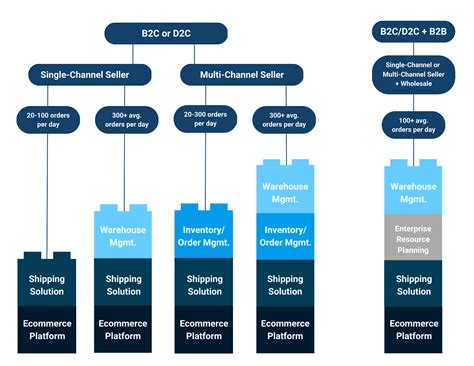In today's fast-paced and highly competitive ecommerce landscape, having the right technology stack can be the difference between success and failure. A well-crafted tech stack can help businesses streamline their operations, improve efficiency, and ultimately drive more sales. With so many tools and platforms available, it can be overwhelming to determine which ones are essential for a winning ecommerce tech stack.

What is an Ecommerce Tech Stack?
An ecommerce tech stack refers to the collection of software applications, tools, and platforms used to build, manage, and grow an ecommerce business. It encompasses everything from website design and development to marketing, sales, and customer service. A well-structured tech stack can help businesses automate processes, improve customer experience, and increase revenue.
Benefits of a Well-Structured Ecommerce Tech Stack
- Improved Efficiency: Automating processes and streamlining operations can help businesses save time and resources.
- Enhanced Customer Experience: A well-structured tech stack can help businesses provide a seamless and personalized shopping experience for customers.
- Increased Revenue: By optimizing marketing, sales, and customer service, businesses can increase revenue and drive growth.
- Better Data Analysis: A well-structured tech stack can provide businesses with valuable insights into customer behavior, sales trends, and market analysis.
7 Essential Tools for a Winning Ecommerce Tech Stack
1. Ecommerce Platform
An ecommerce platform is the foundation of any ecommerce business. It provides the infrastructure for creating and managing an online store. Popular ecommerce platforms include Shopify, Magento, and WooCommerce.

2. Payment Gateway
A payment gateway is a critical component of any ecommerce business. It enables businesses to process payments securely and efficiently. Popular payment gateways include PayPal, Stripe, and Square.

3. Inventory Management System
An inventory management system helps businesses track and manage their inventory levels in real-time. It can help businesses avoid stockouts, overstocking, and improve order fulfillment. Popular inventory management systems include TradeGecko, Zoho Inventory, and Skubana.

4. Marketing Automation Tool
A marketing automation tool helps businesses automate and streamline their marketing efforts. It can help businesses improve customer engagement, increase conversions, and drive revenue. Popular marketing automation tools include Marketo, HubSpot, and Mailchimp.

5. Customer Service Platform
A customer service platform helps businesses provide timely and effective support to customers. It can help businesses improve customer satisfaction, reduce churn, and increase loyalty. Popular customer service platforms include Zendesk, Freshdesk, and HelpScout.

6. Analytics and Reporting Tool
An analytics and reporting tool helps businesses track and analyze their sales data, customer behavior, and market trends. It can help businesses make data-driven decisions, optimize their operations, and drive growth. Popular analytics and reporting tools include Google Analytics, Mixpanel, and Klipfolio.

7. Security and Compliance Tool
A security and compliance tool helps businesses protect their customers' data and ensure compliance with industry regulations. It can help businesses prevent data breaches, reduce risk, and maintain trust with customers. Popular security and compliance tools include Norton, McAfee, and Compliance.ai.

Conclusion
Building a winning ecommerce tech stack requires careful consideration of various tools and platforms. By incorporating the seven essential tools outlined above, businesses can create a robust and efficient ecommerce tech stack that drives growth, improves customer experience, and increases revenue.
Gallery of Ecommerce Tech Stack Tools






What is an ecommerce tech stack?
+An ecommerce tech stack refers to the collection of software applications, tools, and platforms used to build, manage, and grow an ecommerce business.
What are the benefits of a well-structured ecommerce tech stack?
+A well-structured ecommerce tech stack can improve efficiency, enhance customer experience, increase revenue, and provide better data analysis.
What are the essential tools for a winning ecommerce tech stack?
+The seven essential tools for a winning ecommerce tech stack include an ecommerce platform, payment gateway, inventory management system, marketing automation tool, customer service platform, analytics and reporting tool, and security and compliance tool.
